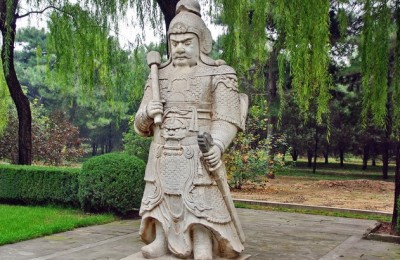
Monira Matin
China’s insurance regulator is looking to tighten its grip on the industry as one of its top officials faces a corruption inquiry into a wave of blockbuster global deals that are raising concerns about financial risk in the world’s second-largest economy.
The China Insurance Regulatory Commission (Circ) said in a statement on Monday that the insurance sector should guard against financial risks, support supply-side structural reform and help promote the development of the real economy.
Corruption probe
It comes as Beijing revealed on Sunday that China’s anti-corruption investigators are targeting top Circ official Xiang Junbo for "severe violations of discipline", the term generally used for corruption.
China’s leader, premier Li Keqiang, said the country's financial sector is vulnerable to risks such as bad assets, bond defaults, shadow banking and internet financing, with frequent illegal and corrupt activities.
China has sought to energise its long-sleepy insurance industry as part of an effort to modernise its financial system and capitalise on the emergence of middle-class spenders who want financial security.
In February, the government said it was considering easing the 50% ownership cap on overseas life insurers buying domestic companies in the biggest shakeup of the industry in almost two decades.
Under Xiang’s tenure, the industry has grown to $2.2trn (€2.07bn, £1.76bn) in assets but has come under fire for its risky investments.
‘Barbarians’ warning
The regulator has also repeatedly warned insurers against the risks of selling high cash-value short-term universal life insurance products as well as short-term trading, announcing last December that it plans to roll out new rules to reduce the proportion of insurance funds allowed to invest in stocks. It will also intervene if insurers make frequent share purchases.
This includes selling investment products that were regulated as life insurance but promised high rates of return with maturities as little as 12 months.
These products allowed insurers, particularly smaller insurers, to raise large sums of money quickly, which they then used to speculate in bonds, real estate and other investments.
Xiang accusing insurers last December of behaving like “barbarians” over their conduct during acquisitions, urging them to return “back to basics” and stick to their main business of selling insurance instead of investment products.
At the time, the watchdog announced it had suspended Evergrande Life, the insurance unit of the country’s largest property developer, China Evergrande Group, from investing in stocks, accusing it of short-term trading that violated investment rules.
Earlier this year, ratings agency Moody’s warned that life insurers in China will continue to invest in risky assets, despite the recent clampdown.
Standard Life sale
Last month, Standard Life has agreed to sell its wholly-owned Hong Kong life operation to its Chinese joint venture company Heng An Standard Life Insurance Company (HASL).
Another Chinese insurer Anbang bought the Waldorf Astoria in 2015.
This article was originally published by International Adviser
